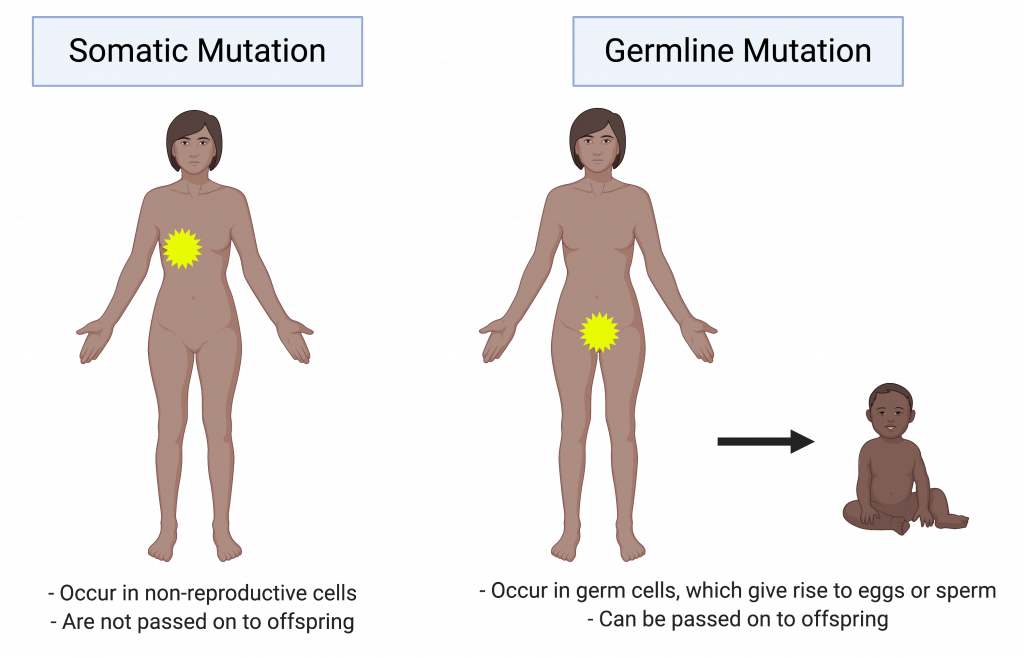15.2 Causes of Mutation
Mutations can occur spontaneously, during normal cellular processes, or be induced by exposure to physical or chemical agents that change the DNA.
Spontaneous mutations occur due to compounds that are released during metabolism, such as reactive oxygen species. This causes DNA damage. This is an extremely common occurrence; in fact, it has been estimated at 10,000 instances per day per human cell. DNA damage is a major cause of aging. In many cases, DNA damage can be repaired; however, mistakes in DNA repair can result in mutation.
Another major cause of mutations is errors in DNA replication. DNA replication is a highly accurate process, but mistakes can occasionally occur, such as a DNA polymerase inserting a wrong base. Repair mechanisms correct the mistakes. In rare cases, mistakes are not corrected, leading to mutations; in other cases, repair enzymes are themselves mutated or defective. Uncorrected mistakes that result in mutation can have severe consequences, such as cancer.
Mutations can also be induced by environmental insult. Many chemicals are capable of inducing DNA damage, which can result in mutations. Radiation, including ultraviolet light and ionizing radiation, can cause mutations as well. Some viruses, but not all, are capable of inserting their own genome into the genome of their host cell, which can result in mutation. Finally, transposons, mobile DNA elements that can move from one location in the genome to another, can induce mutations.
Although the exact numbers are unknown, current studies estimate that the majority of mutations are caused by DNA replication errors.

In multicellular organisms, mutations can be classified as either somatic or germline. Somatic mutations are those that take place in non-reproductive cells. Although they can have serious effects, such as cancer, they cannot be passed down to an organism’s offspring. Germline mutations, on the other hand, take place in the reproductive cells and can be passed on to offspring and subsequent generations.
a mutation that arises in a non-reproductive cell; cannot be passed on to offspring
mutation in reproductive cell that can be passed on to offspring and subsequent generations

